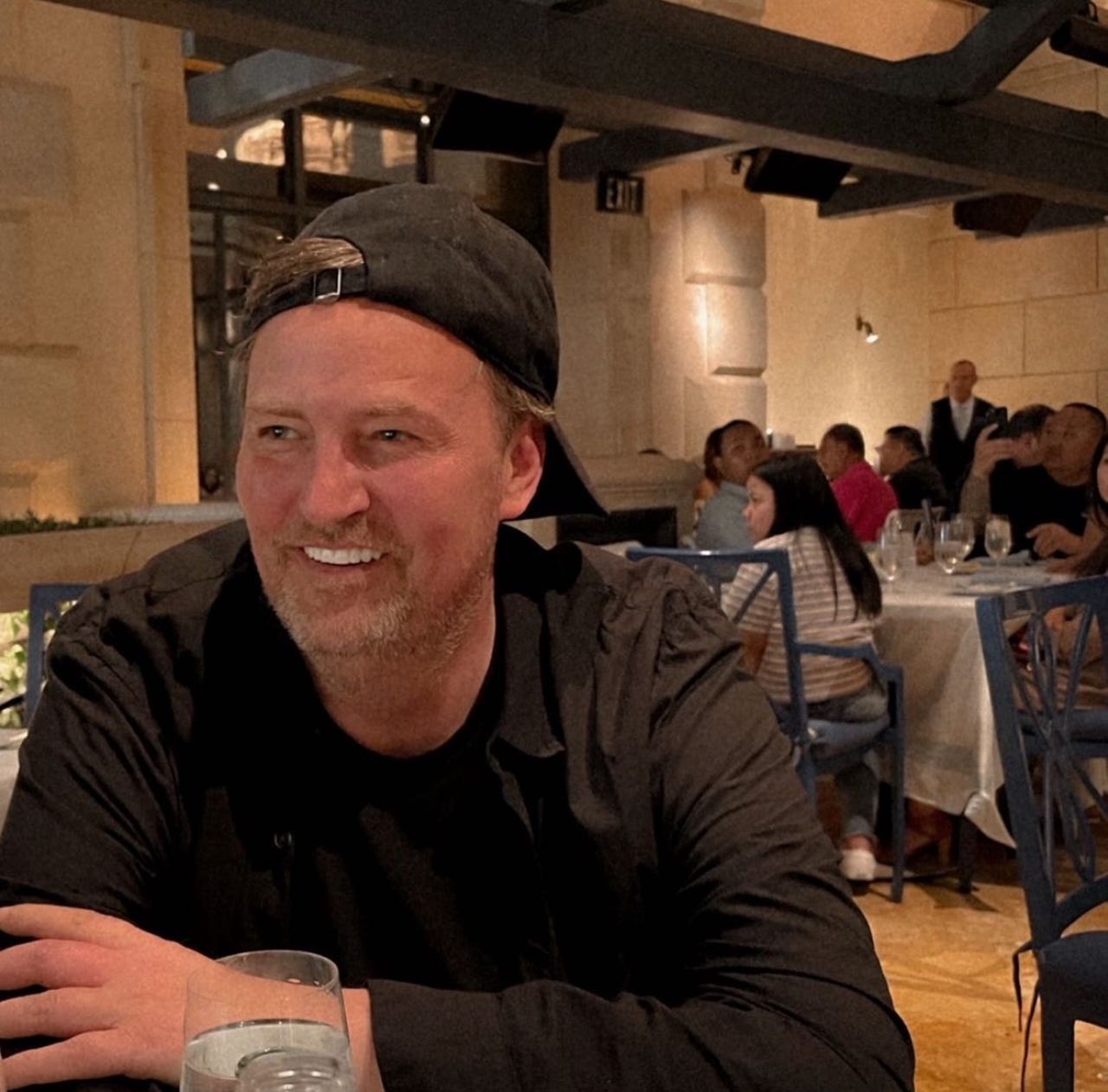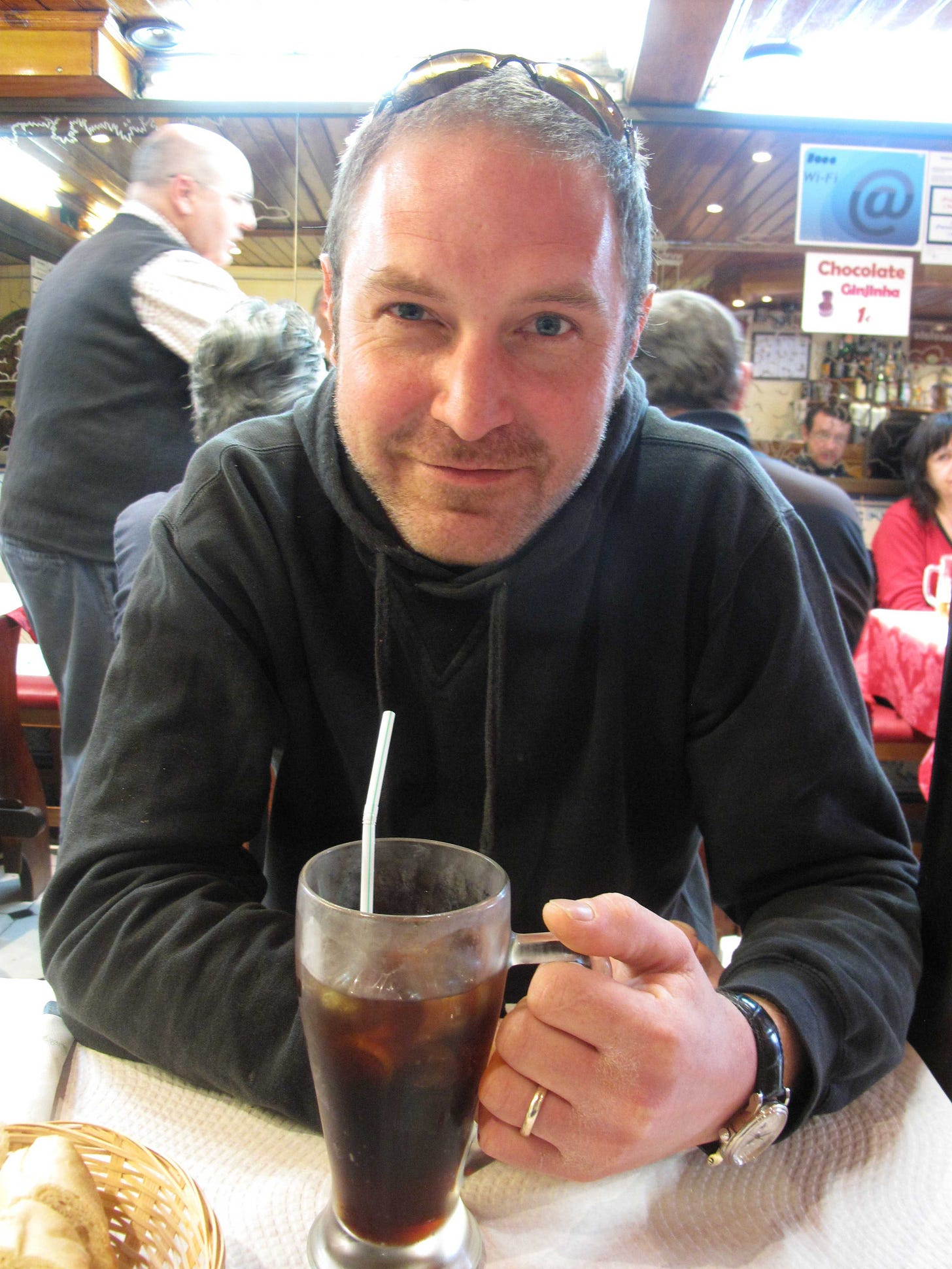

Discover more from As I Was Saying with Poorna Bell
On wanting to know how Matthew Perry died
Thoughts on people recalibrating his memory according to the morality measuring stick
Credit: Matthew Perry Instagram/mattyperry4
I hope you’re enjoying As I Was Saying with Poorna Bell, and if you’ve found it funny, helpful or you simply liked the writing, it is entirely a reader-supported and funded publication. If you’d like it to keep going, and have access to the full archive, and be able to comment, the best way to support is through a paid subscription.
I didn’t know death had a hierarchy until my husband died. There are some deaths that are considered more noble than others, and other deaths that are used to subtract from the overall value of that person’s life. None of that, of course, affects the dead.
It does affect the ones who are left behind, in particular, when addiction is in the mix. I think people imagine that if your loved one is an addict, you somehow expected it, or there’s an unholy rationalisation of ‘well they brought it on themselves’ so you get meted a smaller portion of sympathy you didn’t even want in the first place.
The joke is on them, because there is nothing, no justification, no reasoning, no morality scale that makes your grief lessen, because as anyone who has experienced it will know, we all know what it is like to stand next to the kind of emptiness you didn’t know existed, to be haunted by the after-glow of a soul that no longer remains corporeal.
The moment Matthew Perry died, whether they voiced it or not, most people wanted to know the how. People are mostly voyeuristic with death and tragedy anyway, but this cranks up if the person who died had a history of addiction as he did.
Knowing doesn’t change the outcome. People can lie to themselves and say well, it’s in the public interest (it isn’t) but to some it matters because they need to settle the matter of whether Matthew Perry deserves their grief. And this tells you everything we need to know about how much people moralise addiction, and how even in death, it is used against a person to withhold their humanity.
My husband Rob died by suicide, which is the most taboo of deaths. A reaction to a death like this tends to be one of anger because of the preventable aspect of suicide. Suicide is preventable, but so are other illnesses, and its causes aren’t just on the individual – in fact, one would say particularly in the case of men whose suicide rate is overwhelming higher than any other group, societal and social conditioning plays an enormous part.
In the early days, when people found out how Rob died, I could see the look on their face. Some were sympathetic but there was a sense that they were thinking about how selfish he was, and how could he do that to his wife, his family? I am not saying that I have made my peace with his death – I doubt I ever will – but I understand it. And in doing so, I have been able to hold onto the love I have always had for him, which has never diminished in size, and crucially, I have retained his humanity.
Rob in Portugal
If you knew about Rob’s cause of death, that would tell you nothing about the most important thing: his life. And as articles fly out about Matthew Perry’s cause of death, SEO-primed pieces on the drug he took the night he died, Matthew Perry’s life, as much I can tell, was about someone who yes, was a famous actor, but did a lot to help others with addiction recovery and set up a holistic rehab centre. He wasn’t perfect, in fact he created a lot of carnage particularly when he was using, but he was a tennis prodigy, played the piano and loved dogs.
When I talk about Rob, I always make sure to tell people about his love of birds. and plants. His music preferences from Dolly Parton to Slayer. Because addiction is something that Rob struggled with most of his life, and when I mention that it was something he dealt with, I can see the look in a person’s eyes change. It moves either to understanding or judgement.
In the early years, I wanted to overturn that judgement and help educate people about what addiction really was, and how, while it could be so destructive on a life, it was important not to moralise. I had been hugely judgemental about addiction before I knew about Rob and helped him with his recovery, and the only way I had changed my thinking was by trying to understand what it was like, and what was actually going on beneath the substance use.
The position most people take in their judgement is that they would never jeopardise their families, their job, their home in order to drink or do drugs. I would never do that I remember telling Rob once when referring to an addict we both knew, and now I know how goddamn lucky and grateful I should be that it has not been a path I felt compelled to take. That instead of using my life as a measuring stick for how others should have been living theirs, I should have been more curious, more empathetic about what compels a person to hurtle to their own event horizon.
These days, I don’t talk about Rob’s death or context as much, mainly because I have done a lot of it, and it exists in perpetuity in the form of books and articles such as these. But it’s also a protective mechanism against the voyeurs. For some, hearing that suicide was his cause of death isn’t enough. Some ghouls want to know how. It hasn’t happened often, but when I am asked that, I say no, I don’t talk about that. It might be in the public domain, but I tell them very flatly that it’s a question you just don’t ask. Whatever the answer, it’s not for you.
If learning about how Matthew Perry died prompts people to be more curious and to work on dismantling their judgement, then perhaps it might be justified. But knowing what I know about human nature, I doubt it. It will become a throwaway phrase when people watch reruns of Friends. What a shame. Pity he was an addict. And in doing so, his humanity will be taken from him.
















Beautiful words as usual. Sending well wishes. 🥰
This really resonated with me Poorna. My brother ended his life several years before Rob did and I've lost count of the voyeurism and the people who needed to know all the ins and outs of his death, losing sight of who he was as a person. My brother wasn't perfect by any means, but he also had a lot of good points, and I refuse to let his humanity be taken from him.